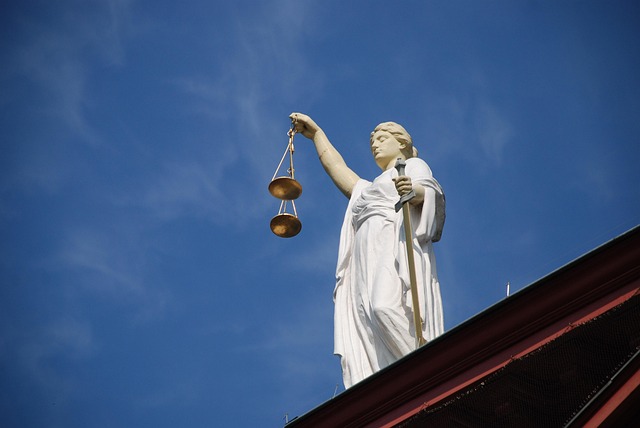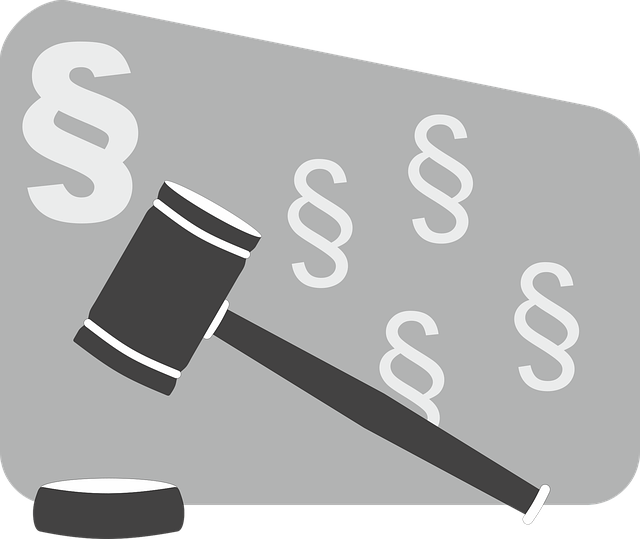Prosecutorial discretion limits in criminal justice are crucial for balancing justice and fairness. Key restrictions, like probable cause and jury trial rights, prevent arbitrary decisions, protecting victims and accused. Recent transformations focus on transparency and accountability to ensure equality before the law, especially in white-collar crime cases. Balancing prosecutorial power with ethical boundaries is vital to maintain integrity, guard against biases, and respect due process for all accused persons.
In the intricate landscape of criminal law enforcement, understanding prosecutorial discretion is pivotal. This article delves into the delicate balance between prosecutors’ vast power and necessary limits, exploring key factors that restrict their authority. We analyze how these constraints impact criminal justice procedures, present compelling case studies, and discuss strategies to ensure fairness while respecting prosecutorial discretion in its purest form. Unraveling these nuances is essential for navigating the complexities of modern criminal justice systems.
- Understanding Prosecutorial Discretion in Criminal Law
- Key Factors Limiting Prosecutorial Power
- The Impact on Criminal Justice Procedures
- Case Studies: When Limits are Crossed
- Balancing Discretion and Fairness in Prosecution
Understanding Prosecutorial Discretion in Criminal Law

In criminal law, prosecutorial discretion plays a significant role in the justice system by allowing prosecutors to decide which crimes to pursue and how to charge individuals. This discretion is a critical component of the criminal justice process, offering flexibility that can ensure fairness and efficiency. However, it’s not without limits. Prosecutors must adhere to legal boundaries set by statutes, court rulings, and ethical guidelines, especially in high-stakes cases like white collar defense.
The boundaries on prosecutorial discretion are particularly vital to navigate in complex cases where the potential consequences are severe. For instance, in avoiding indictment scenarios, prosecutors must balance their duty to seek justice with the need to preserve the integrity of the system. This involves evaluating the strength of evidence, assessing potential impact on victims and society, and considering alternative resolutions to ensure that justice is served while adhering to legal constraints and avoiding arbitrary decisions.
Key Factors Limiting Prosecutorial Power

In the realm of criminal law enforcement, prosecutorial discretion limits play a crucial role in balancing justice and fairness. Despite the power vested in prosecutors to pursue cases, several key factors act as restraints, ensuring that the process remains balanced. These limits are essential to protect against arbitrary decision-making and safeguard the rights of both victims and accused individuals.
One significant factor is the principle of avoiding indictment without probable cause. This ensures that accusations are not levied lightly, preserving the integrity of the justice system. Additionally, the right to a jury trial acts as a check on prosecutorial power, allowing defendants to challenge allegations in a transparent setting. These protections are vital for ensuring that criminal proceedings are conducted fairly, even when dealing with complex or sensitive cases, and for his clients’ best interests.
The Impact on Criminal Justice Procedures

The criminal justice system’s procedures have evolved significantly due to the scrutiny of prosecutorial discretion limits in recent years. This shift is driven by a growing recognition that unfettered prosecutorial power can lead to disparities and injustices, disproportionately affecting marginalized communities. As such, there’s a growing emphasis on transparency and accountability in the charging and sentencing processes. These changes aim to ensure fairness and equality before the law, reflecting the values of modern society.
Prosecutorial discretion, while crucial for flexible application of the law, must be balanced against the need to preserve the integrity of the justice system. With increasing public awareness and scrutiny, legal frameworks are being adapted to limit arbitrary decisions that might favor certain segments of society—be it corporate or individual clients. This reform is further supported by the realization that jury trials, as a cornerstone of criminal justice, require clear boundaries to prevent bias and ensure the rights of both defendants and philanthropic and political communities alike.
Case Studies: When Limits are Crossed

In criminal law enforcement, case studies often highlight where the balance between justice and discretion tips too far. One such instance involves a high-profile case of white collar and economic crimes. The prosecutor, wielding significant prosecutorial discretion limits in criminal justice, decided to pursue charges against an individual who had allegedly defrauded investors. However, as evidence emerged, it became apparent that the prosecution’s strategy was not just about seeking justice but also personal vengeance. The accused, a successful entrepreneur, was facing charges that could result in a complete dismissal of all charges if his lawyers successfully argued that the prosecution’s actions were excessive and beyond their discretion.
This scenario underscores the delicate nature of prosecutorial power. While prosecutors have considerable leeway to decide which cases to pursue, they must adhere to legal boundaries and ethical standards. When limits are crossed, as in this case study, it not only undermines the integrity of the criminal justice system but also threatens the rights of the accused. It is crucial for both law enforcement agencies and the judiciary to remain vigilant, ensuring that prosecutorial discretion remains a tool for administering justice rather than a license for arbitrary decisions.
Balancing Discretion and Fairness in Prosecution

In the realm of criminal law enforcement, balancing discretion and fairness is a delicate act. Prosecutors possess significant power, especially in high-stakes cases involving corporate and individual clients, which necessitates strict limits on their discretionary authority. The potential for abuse must be mitigated to ensure that justice is served without bias. Achieving extraordinary results in prosecution doesn’t come without ethical boundaries; it demands transparency and consistency in decision-making processes.
Every case is unique, but equal treatment under the law should be the norm. Prosecutorial discretion limits are crucial to prevent arbitrary decisions that could impact life, liberty, and property. These safeguards ensure that prosecutors act as guardians of justice, not as arbiters guided solely by personal interests or external pressures. Fairness, in this context, means applying consistent standards, avoiding racial or economic biases, and ensuring due process for all accused persons.
In navigating the intricate landscape of criminal law enforcement, understanding and balancing prosecutorial discretion is paramount. As seen through key factors limiting this power and case studies highlighting its potential abuses, it’s clear that strict guidelines are necessary to ensure fairness within the criminal justice system. By carefully weighing prosecutorial discretion against established limits, we can foster a more equitable and just society where the law serves all citizens without bias or favoritism. These discussions underscore the importance of continuous evaluation and reform in terms of prosecutorial discretion limits in criminal justice.






